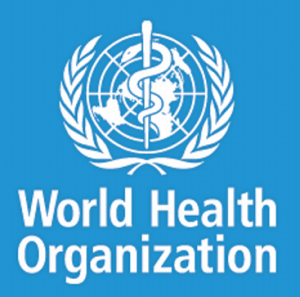WHO organises stakeholder training to combat illicit trade in tobacco products
 A two-day training programme has been organised for stakeholders in the Securities and supply chain industry, to combat tobacco trading in the country through unauthorised and unapproved routes.
A two-day training programme has been organised for stakeholders in the Securities and supply chain industry, to combat tobacco trading in the country through unauthorised and unapproved routes.
The training, sponsored by the WHO Framework Convention on Tobacco Control (FCTC) Secretariat under Project 2030, is aimed at reducing the entry of illicit substances such as tobacco products into the country.
Tobacco is a significant threat to health and correspondingly an impediment to sustainable development.
Illicit trade in tobacco products poses a grave threat to public health. It not only increases access to tobacco products, often at cheaper prices, but it also undermines the hard-won gains of tobacco control policies.
The trade fuels the tobacco epidemic, leading to increased health risks for citizens, particularly the youth.
The government loses revenue, further straining the ability to provide essential services, while inadvertently funding international criminal activities.
Ghana ratified the Protocol to Eliminate Illicit Trade in Tobacco Products in 2021 in addition to the various conventions and protocols aimed at the control of tobacco by her status as a party to the WHO FCTC.
The Protocol does not only contain measures to combat illicit trade, but a framework to promote law enforcement whilst providing the legal basis for international cooperation.
Recommendations made after the Needs assessment mission of the Protocol to Eliminate Illicit Trade in Tobacco Products in Ghana, included the need to train enforcement and security agencies on the protocol to build capacity and create awareness.
The Head of Tobacco and Tobacco products at the Food and Drugs Authority in Accra, Ms Jemima Odonkor said, there was still illicit products on the Ghanaian market.
She said the training would harness the collective expertise of all interested parties, fostering a consultative and collaborative environment and ensuring that efforts align with global priorities and leveraged the support available.
The training cuts across the municipal, district and metropolitan areas, police, Ghana Revenue Authority, judiciary, tourism, and securities relevant to the implementation of tobacco control from importation, through distribution, safe exposure, and its subsequent disposal, she added.
It would build the technical capacity for law enforcement agencies at the regional levels, create awareness of the Protocol to Eliminate Illicit Trade in Tobacco Products, enhance coordinating mechanisms for tobacco control at the various sub-national levels and identify the roles of relevant stakeholders in the implementation of the protocols.
Dr Martin Kusi, the Western Regional Director, Food and Drugs Authority, said most illicit substances came into the country through the land borders and appealed to the inter-border agencies to work together to help clamp down on the menace.
The Head of Customs at the Elubo Division, Daniel Louis Mennia called on boarder communities to help the inter-boarder agencies with timely and credible information for effective operations.
Source: GNA
